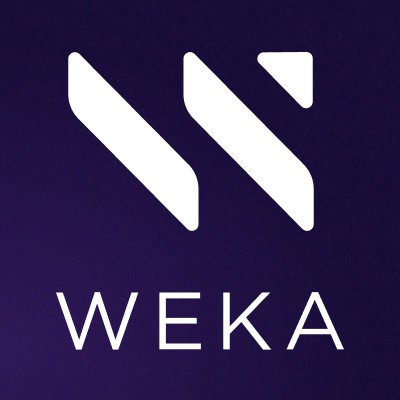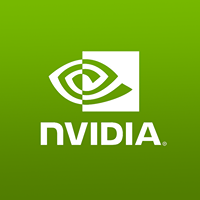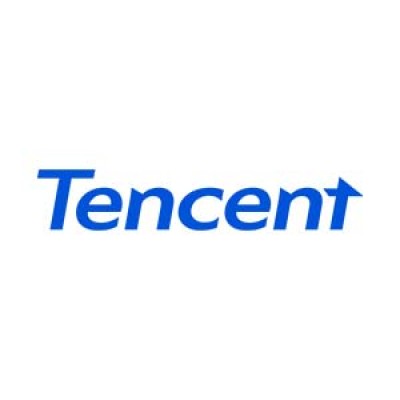Tensormesh Secures $4.5M, Revolutionizes AI Inference Efficiency
October 28, 2025, 9:33 pm

Location: United States, California, Campbell
Employees: 51-200
Founded date: 2014
Total raised: $411.7M
Tensormesh, a pivotal AI infrastructure company, has publicly launched, securing $4.5 million in seed funding led by Laude Ventures. Its groundbreaking platform revolutionizes AI inference, drastically cutting GPU costs and latency by up to 10x for enterprises. The technology leverages advanced caching, commercializing the acclaimed open-source LMCache project, co-created by CEO Junchen Jiang. This enables unparalleled efficiency for large language model (LLM) deployments. Tensormesh guarantees full data control and infrastructure flexibility. It positions itself as an essential layer in the enterprise AI stack. The firm addresses surging demand for sustainable, high-performance AI solutions, dramatically reducing compute waste and accelerating AI adoption across industries.
Latency is another critical issue. Real-time AI applications demand swift responses. Slow inference times degrade user experience. They hinder crucial business operations. Current infrastructure often struggles to meet these demands. Companies face a dilemma. They must either send sensitive data to external parties for AI processing or invest heavily in building custom infrastructure. Both options carry substantial risks and costs.
Data control remains paramount. Enterprises require complete oversight of their intellectual property. They need security. Cloud-agnostic solutions are highly valued. Businesses seek flexibility. They avoid vendor lock-in. The industry needs a new approach. It requires a solution addressing efficiency, performance, cost, and control.
The firm's technology is groundbreaking. It pioneers caching-accelerated inference optimization. This directly benefits enterprise AI applications. Tensormesh’s platform promises dramatic improvements. It reduces redundant computation during inference. This action cuts GPU costs. It slashes latency. Improvements can reach up to tenfold. Enterprises maintain full control. Their infrastructure and data remain sovereign.
Junchen Jiang leads Tensormesh. He is a University of Chicago faculty member. Jiang also co-created LMCache. LMCache is a leading open-source key-value caching project. It boasts impressive credentials. Over 5,000 GitHub stars showcase its popularity. More than 100 contributors support its growth.
LMCache is widely integrated. Frameworks like vLLM incorporate it. NVIDIA Dynamo uses its capabilities. Its adoption spans across the AI ecosystem. Prominent organizations utilize LMCache. Bloomberg, Red Hat, Redis, Tencent, GMI Cloud, and WEKA are among them. This widespread use validates its effectiveness.
Tensormesh commercializes this robust technology. It is the first commercial platform. It productizes caching for large-scale AI inference. The platform combines LMCache's performance innovations. It adds enterprise-grade usability. Security features are paramount. Scalability is built-in. This makes advanced optimization accessible.
This capability is a breakthrough. It drives major efficiency gains. Especially for LLM deployments. The system captures intermediate data. Other systems often discard it. Tensormesh reuses this data. This smart approach boosts performance. It maximizes existing infrastructure.
Tensormesh supports diverse storage backends. This ensures low-latency. It provides high-throughput inference. The platform operates across clusters. This flexibility makes it crucial. It forms a critical layer in the enterprise AI stack. It ensures optimal performance.
The company's solution provides a third path. It avoids third-party data reliance. It eliminates the need for massive in-house infrastructure builds. Instead, it offers state-of-the-art optimizations. Cost savings are inherent. Performance is accelerated. This empowers enterprises. They can deploy AI securely and efficiently.
Tensormesh has already demonstrated strong partnerships. Redis integration showcases scalable solutions. Distributed LLM KVCache sharing is a reality. Benchmarks confirm remarkable improvements. Both performance and efficiency see gains. WEKA has also collaborated closely. Its Augmented Memory Grid solution benefits from LMCache integration. This helps the broader AI community. It tackles tough inference challenges.
Tensormesh's beta is now available. Enterprises can access its capabilities. They can accelerate AI performance. This applies to their own infrastructure. It also extends to public clouds. The company is poised for significant growth. It defines a critical new layer in the AI stack. It aims to own this segment. Caching stands as an underutilized lever. Tensormesh applies it smartly. It scales its application effectively. This positions the company for leadership. The future of AI inference efficiency looks brighter.
The company plans to expand operations. Development efforts will intensify. This will further enhance its platform. Tensormesh is not just optimizing AI. It is democratizing high-performance AI. It makes it accessible. It makes it affordable. It makes it secure. This benefits all enterprises.
AI Inference: A Growing Challenge
Artificial intelligence adoption surges. Enterprises increasingly deploy sophisticated AI models. Large Language Models (LLMs) lead this charge. But this growth presents major hurdles. AI inference, the process of running trained models, consumes immense computational power. GPUs are critical. They are also expensive. Operational costs escalate rapidly. This creates a significant barrier for many businesses.Latency is another critical issue. Real-time AI applications demand swift responses. Slow inference times degrade user experience. They hinder crucial business operations. Current infrastructure often struggles to meet these demands. Companies face a dilemma. They must either send sensitive data to external parties for AI processing or invest heavily in building custom infrastructure. Both options carry substantial risks and costs.
Data control remains paramount. Enterprises require complete oversight of their intellectual property. They need security. Cloud-agnostic solutions are highly valued. Businesses seek flexibility. They avoid vendor lock-in. The industry needs a new approach. It requires a solution addressing efficiency, performance, cost, and control.
Tensormesh Emerges from Stealth
Tensormesh offers this solution. The company recently emerged from stealth. It announced a $4.5 million seed funding round. Laude Ventures led the investment. This capital fuels expanded operations. It drives further development efforts. Tensormesh positions itself as a leader. It tackles AI inference optimization.The firm's technology is groundbreaking. It pioneers caching-accelerated inference optimization. This directly benefits enterprise AI applications. Tensormesh’s platform promises dramatic improvements. It reduces redundant computation during inference. This action cuts GPU costs. It slashes latency. Improvements can reach up to tenfold. Enterprises maintain full control. Their infrastructure and data remain sovereign.
Foundational Innovation: LMCache and Distributed Systems
Tensormesh builds on deep academic research. Its roots are in distributed systems. It leverages extensive AI infrastructure work. Faculty and PhD researchers founded the company. These experts hail from top institutions. The University of Chicago, UC Berkeley, and Carnegie Mellon University contribute.Junchen Jiang leads Tensormesh. He is a University of Chicago faculty member. Jiang also co-created LMCache. LMCache is a leading open-source key-value caching project. It boasts impressive credentials. Over 5,000 GitHub stars showcase its popularity. More than 100 contributors support its growth.
LMCache is widely integrated. Frameworks like vLLM incorporate it. NVIDIA Dynamo uses its capabilities. Its adoption spans across the AI ecosystem. Prominent organizations utilize LMCache. Bloomberg, Red Hat, Redis, Tencent, GMI Cloud, and WEKA are among them. This widespread use validates its effectiveness.
Tensormesh commercializes this robust technology. It is the first commercial platform. It productizes caching for large-scale AI inference. The platform combines LMCache's performance innovations. It adds enterprise-grade usability. Security features are paramount. Scalability is built-in. This makes advanced optimization accessible.
Unlocking LLM Efficiency
Large Language Models represent the frontier of AI. Their inference workloads are particularly demanding. Tensormesh addresses this challenge directly. Its distributed caching capabilities are key. They enable sharing of key-value cache (KV-cache). This sharing occurs across multiple nodes.This capability is a breakthrough. It drives major efficiency gains. Especially for LLM deployments. The system captures intermediate data. Other systems often discard it. Tensormesh reuses this data. This smart approach boosts performance. It maximizes existing infrastructure.
Tensormesh supports diverse storage backends. This ensures low-latency. It provides high-throughput inference. The platform operates across clusters. This flexibility makes it crucial. It forms a critical layer in the enterprise AI stack. It ensures optimal performance.
Strategic Impact and Future Outlook
The demand for AI is insatiable. Inference workloads will only surge. Enterprises urgently seek sustainable efficiency solutions. Tensormesh's caching-based approach delivers. It dramatically reduces compute waste. It maintains vital cloud-agnostic flexibility. This empowers businesses. They can run AI wherever they choose.The company's solution provides a third path. It avoids third-party data reliance. It eliminates the need for massive in-house infrastructure builds. Instead, it offers state-of-the-art optimizations. Cost savings are inherent. Performance is accelerated. This empowers enterprises. They can deploy AI securely and efficiently.
Tensormesh has already demonstrated strong partnerships. Redis integration showcases scalable solutions. Distributed LLM KVCache sharing is a reality. Benchmarks confirm remarkable improvements. Both performance and efficiency see gains. WEKA has also collaborated closely. Its Augmented Memory Grid solution benefits from LMCache integration. This helps the broader AI community. It tackles tough inference challenges.
Tensormesh's beta is now available. Enterprises can access its capabilities. They can accelerate AI performance. This applies to their own infrastructure. It also extends to public clouds. The company is poised for significant growth. It defines a critical new layer in the AI stack. It aims to own this segment. Caching stands as an underutilized lever. Tensormesh applies it smartly. It scales its application effectively. This positions the company for leadership. The future of AI inference efficiency looks brighter.
The company plans to expand operations. Development efforts will intensify. This will further enhance its platform. Tensormesh is not just optimizing AI. It is democratizing high-performance AI. It makes it accessible. It makes it affordable. It makes it secure. This benefits all enterprises.


